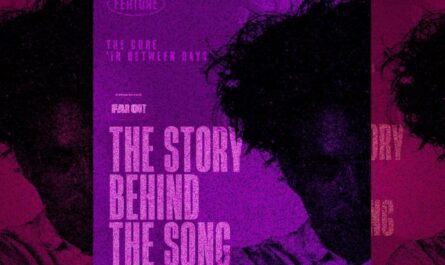Leonard Cohen is one of those rare people who have as much claim to being a poet as they do to being a musician. Through all his lamentations about love, loss, life, and everything in between, however, there was one death that stung more than most.
As much as the rest of society likes to paint the picture of the 1960s being a wonderworld of free spirit, psychedelia, and a wave of political uprising, Cohen felt something quite different inside his heart. That romantic idea of the swinging ‘60s perhaps only lasted for the shortest possible time, and continued on as a mirage for the rest of the decade, which people claimed to perpetuate, when really they were just falling flat on their faces.
That was the wordsmith’s view from up in his ivory tower, at least – or, more appropriately, the Greek island of Hydra, where he found himself in the late ‘60s with his girlfriend Marianne Ihlen, where there was a literal disconnect from society due to the lack of telephone wires and electricity in the place. As such, this put Cohen very physically into a position of introspection and loneliness – but gave him the space to write one of his most special tunes.
As such, the song ‘Bird On the Wire’ was born out of an acute sense of desperation when the facade of the bubble was eventually burst and telephone poles were, indeed, installed on the island. Cohen later recalled how he would “stare out the window at these telephone wires and think how civilisation had caught up with me and I wasn’t going to be able to escape after all. I wasn’t going to be able to live this 11th-century life that I thought I had found for myself. So that was the beginning.”
But the sense of the world encroaching on one’s doorstep was a feeling that the lyricist just couldn’t shake, as he felt it also mirrored a sham that the rest of society had been sold about this so-called shining decade that, by this point, was nearing its end. “Everything was being finished. The sixties were being finished,” Cohen mused, adding, “Maybe that’s what I meant. But I felt the sixties were finished a long time before that.”
He continued: “I don’t think the sixties ever began. I think the whole sixties lasted maybe fifteen or twenty minutes in somebody’s mind. I saw it move very, very quickly into the marketplace. I don’t think there were any sixties.”
In a lot of ways, he was correct. The Beatles and The Beach Boys may have primped and preened themselves to the top of the tree, but how much of this was a true cultural movement before it became a marketing ploy?
In essence, that was exactly where the heart of ‘Bird On the Wire’ lay; in lamenting the end of the dream that didn’t really happen. The world may have liked to perpetuate the romantic ideal that everything was quite literally sunshine and roses, but the truth of the matter was that the sinister actors of society – in this case, the installation of the telephone poles – were always destined to creep in and shatter the illusion. Indeed, what Cohen was trying to say is that they never really left.





